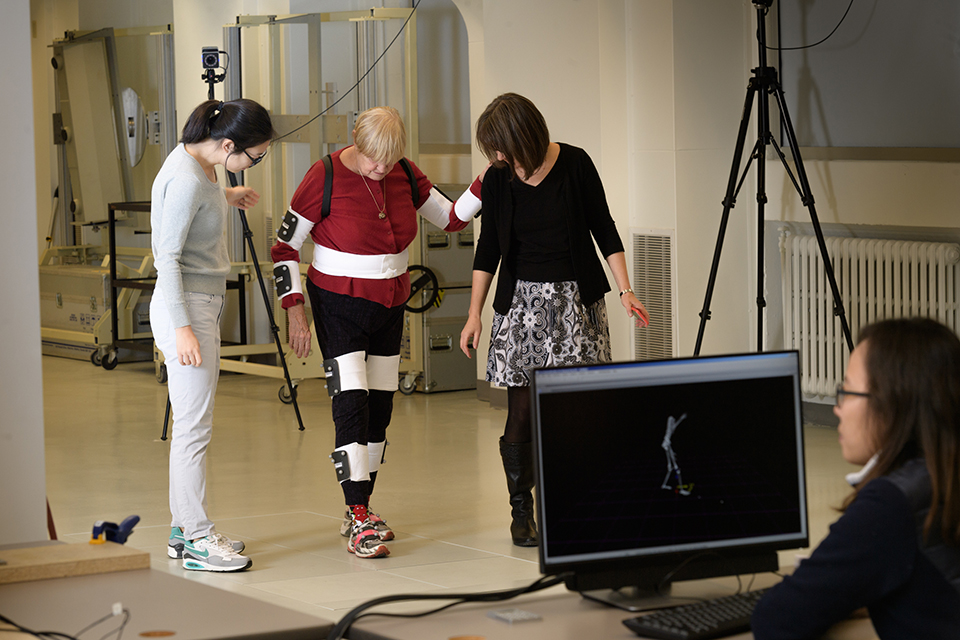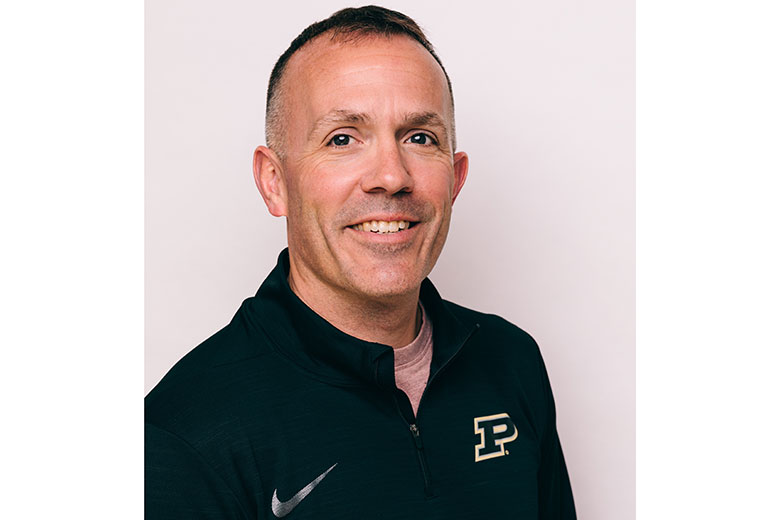Biomechanics, Motor Control and Motor Development Graduate Program
Department of Health and Kinesiology
View DepartmentBiomechanics is the study of movement from a mechanical perspective — including cellular mechanics, muscle behavior, locomotion, reaching and prehension. Motor control investigates the natural laws that describe how the central nervous system interacts with the body and environment to produce coordinated, purposeful movement. Finally, motor development studies the emergence of motor ability in infants and how it co-evolves alongside perceptual abilities.
Combined, these three areas allow researchers in Purdue University’s biomechanics, motor control and motor development graduate program to explore motor behavior and innovative solutions to improve quality of life through both experimental and modeling techniques.
The biomechanics, motor control and motor development graduate program coordinates with the Office of Interdisciplinary Graduate Programs to offer a dual-title PhD as well as a minor and graduate certificate in gerontology through the Center on Aging and the Life Course.
Program Highlights
- The program offers opportunities to collaborate with Purdue’s School of Mechanical Engineering; School of Electrical and Computer Engineering; Department of Speech, Language, and Hearing Sciences; Department of Psychological Sciences; Department of Human Development and Family Studies; and College of Veterinary Medicine as well as Indiana University-Purdue University’s (IUPUI) School of Health and Rehabilitation Sciences.
- The mentor-based program allows students to work directly with one of the graduate faculty mentors in biomechanics, motor control or motor development.
- Graduate students have the opportunity to learn fundamental scientific inquiry of human movement in health, aging and pathology; technology development for effective biomechanical measurements; application of human movement science to graphical user interface design; and more.
Potential Careers
- Product research and development
- Biomechanical researcher
- University faculty
Program Quick Facts
Degree Type:
Master’s, Doctoral
Program Length:
Master’s: 1-3 years
PhD: 3-5 years
Location:
West Lafayette, IN
Department/School:
Department of Health and Kinesiology
Research
The Human Motor Behavior Group offers many opportunities for graduate students who are interested in biomechanics, motor control or motor development to get involved in research projects that improve motor behavior for individuals across the life span.

Research Opportunities
- Bipedal locomotion
- Research and grasping in healthy and pathological populations
- Bipedal balance
- Resistance exercise and memory, cognitive control and cognitive performance
- Reaching/pointing
- Prehensile behaviors in health, aging and disease
- Seated reaching
- Postural sway of seated infants
- Locomotion of infants
Research Areas
- Biomechanics
- Motor Control
- Motor Development
Research Facilities
- Sports and Exercise Psychology Laboratory
- Physical Activity and NeuroCognitive Health (PANCH) Lab
Faculty
Admissions/Requirements

Program Director
Dr. Carroll’s academic work has molded an overall portfolio of research, teaching, and service around a central theme of tendon biology.